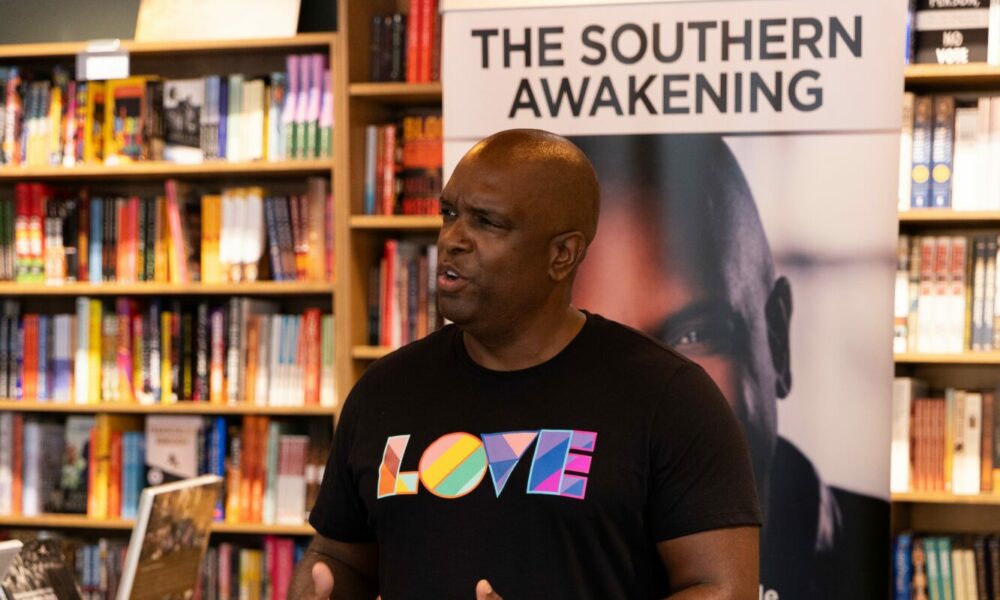

Today we’d like to introduce you to Barnard Sims.
Hi Barnard, we’re thrilled to have a chance to learn your story today. So, before we get into specifics, maybe you can briefly walk us through how you got to where you are today?
First off, I’d like to thank Voyage ATL for this opportunity. I’m a published author, a USCF District (youth) Chess Coach, an acting student, and an activist in my community. I started writing out of necessity. Learning from the likes of Ida B. Wells, James Baldwin, and Tyler Perry, who found that writing is a path to liberation. This was true for me too, whether I was reporting for the NAACP’s legal redress team or simply just journaling to help process thoughts.
Understanding the fact that men have the same emotions as women do. However, from the time we are born, we are encouraged to suppress our emotions. “Stop crying boy, before I give you something to cry about”. This is what we are taught from the time we are little boys. Not being allowed, nor trained on how to properly process feelings over time, becomes a psychological obstruction to us becoming the compassionate human beings that our communities need.
As boys, we are programmed to mask emotions just to make the world around us feel at ease. I think we do this trying to convince the world, and ourselves, that we are these mythical “Supermen”, while inside, who we really are is just plain old Clark Kents. I heard Mental Health Expert, Jay Barnett, say at a Wellness Conference is South Carolina that “this society doesn’t provide Black men enough spaces or phone booths” as was required for Clark Kent to change into this imaginary Super Human figure. Leaving us Black men struggling trying to navigate a world with very unrealistic expectations. We must be creative in providing more rooms to equip Black men with the tools needed to process our inner fears. Without us having those outlets, over time, our capes become bullet-ridden with holes, and our costumes become useless in our attempts to fly.
Our Barbershops are so critical in engaging us to get more lifelines of crucial information to Black men. I’ve served my community as barber for nearly 40 years. What I have learned from having my hand on the pulse of our community is that Black men do seek spaces to properly express their sentiments in more ways besides just talking about sports.
Some of us just get so culturally conditioned into feeling like we are swimming across this lake called the Treacherous Waters of America, and the moment we turn our faces up to get a gasp of air, there is always some hand trying to push our heads back down into the water!
For me, writing has become an affirming outlet for needed expression. The culmination of gathering our stories became a book I call THE SOUTHERN AWAKENING: A Black Man’s Guide to Liberating the Rural South by Barnard The Barber.
It is a journey of understanding that in order to fix a system, the first challenge, always, is to first fix me. Writing honestly offers the mirror as a Genesis to learn from and a starting place for growth.
My pen name is Barnard The Barber because in African culture, wisdom in the village is shared and obtained from absorbing wisdom from the elders. And who spends more time in our African yet American villages listening and learning from our elders than our Barbers and Beauticians within our local communities?
Would you say it’s been a smooth road, and if not what are some of the biggest challenges you’ve faced along the way?
One negro spiritual says, “I won’t complain” while the Negro National Anthem says, “We have come, over a way that with tears have been watered. We have come, treading our path through the blood of the slaughtered”. Therefore, as a Black man in America, I am totally aware that I am extremely blessed to have people who’ve sacrificed, because they love me so much. While at the same time, as a Black man in America, I am not sure if a smooth road was ever intended for us here since our nation’s inception.
I was born in 1971 in a rural Barrow County hospital, on the Colored side of the building. Meaning my mother’s chances for surviving my birth was lessened simply because of the color of our skin. And even today, according to the CDC, black women are three times more likely to die giving birth than white women are. On top of that, in rural towns, there aren’t as many healthcare facilities. Couple that with, our health care systems still suffer from implicit biases when it comes to the quality of care for black patients. In rural spaces like Sparta, Georgia, I imagine that Black folks’ chances of surviving medical crises are far worse.
In other words, the struggle for us has always been to see more equitable outcomes for our oppressed, underserved, and often overlooked communities. I wrote in my book that under 50% of Black students are passing standardized tests by the time they reach our local middle school. While 80% of white students are passing the same test in the same school. Why and how is that statistic still true in 2022? Black students don’t have a genetic predisposition to underperform in math or the sciences. For God’s sake, our ancestors are the creators of those subjects! Therefore, we have to be more intuitively involved in fixing this system that is insistent on underserving Black youth in our public educational system.
One factor that is hindering our rural schools from reaching Black children in our public educational system is the blatantly obvious lack of representation in our teaching staffs. Here in rural America, there are webs of white folks in public education, insistent on hiring their own family members, instead of hiring the people who are up to the task of reaching our children.
In my book, I reported that we had 2.8% Black teachers in our entire rural school district, at that time. Today, we have at least six schools in Barrow County, Georgia without a single Black Teacher working in an entire school! **(Barrow County School System Citation Attached)
While simultaneously and very soon, children of color will be the majority of our student population. Meaning that, like it or not, children of color are the next leaders of this nation and we cannot afford to leave our futures lagging behind in school. Black students need more daily optical manifestations of what they should be aspiring to be.
Vice President Kamala Harris stated that “a Black child that has one Black teacher before the end of the third grade is 13% more likely to go to college. If a Black student has two Black teachers by the end of the third grade, they’re 32% more likely to go to college”.
Meaning, our solutions are sometimes staring us right in our faces. We just need to “Be Bold” in collectively challenging ourselves into becoming the society that we say we are on paper. Therefore, to answer the question directly: Has it been a smooth road? Not at all. Stony is the road we trod, but we must march on until victory is won!
Can you tell our readers more about what you do and what you think sets you apart from others?
What do I specialize in, and what I am known for are difficult questions for me to answer because the answers are dependent on what I may be involved in at the time. In my bio, I classify myself as an author, actor, and an activist. I don’t see either of those descriptions as separate parts of my identity as a person. I honestly feel that each aspect of our identities are important components to help configure who we are, in our entirety, as human beings.
Muhammad Ali was who I studied in my formative years. Ali did it for me back when I was trying to figure out what kind of a man I wanted to be. It is because of that black man; my commitment is to love and to the liberation of our people. What I am most proud of is the fact that I know who I am. Also, I take humbled pride in totally understanding whose I am.
Therefore, regardless of the challenges we face, I measure myself by my willingness to take a stand for the people in our society who the “world” treats as the least amongst us. I don’t know if that quality sets me apart or makes me unique. However, I am assured, from the ultimate measure of a man, it will be those qualities of my character that will get me into the great company that we should all desire to be in.
Coincidentally as an author, I have always had a gift for telling stories in a comical way. Another one of my activist idols was/is Dick Gregory because he had the ability to totally embrace being a civil rights leader. Yet, Mr. Gregory’s genius was that he could communicate our harsh realities in a comical. I, too, have always loved making people laugh because I believe that laughter is a way to healing.
Alright so before we go can you talk to us a bit about how people can work with you, collaborate with you or support you?
As of now, we are focusing on more of the preventive aspect of the issues facing our youth. Therefore, we are in the process of forming a nonprofit to address some of the issues plaguing us in rural America. As a chess coach and as an author, of course we will want to engage elementary-aged students with Chess because it is a proven STEM activity. Plus, the game is useful in helping us to encourage better decision-making and planning for the future.
Also, as an author I wish to utilize this platform to promote literacy and to encourage the next generation of authors. We are working on inspiring more Black authors because the African Proverb states: “The story of the hunt only favors the hunter until the lion tells the truth.”
In reality though, almost all good deeds require resources to be sustained over time. A people without a plan for economic sustainability, is a people full of great ideas, waiting to run out of resources.
Therefore, the easiest way to get involved in this movement is to follow us on Instagram @barnardshairsalon
This will help to remain connected and current on our upcoming events. For now, we encourage all who can to support our books and shirts that are for sale on our website: Barnardthebarber.com
Support is an action verb, so we look forward to collaborating with anyone trying to uplift our communities. Finally, I cannot leave without thanking you Voyage ATL for having me and all that you do to amplify our voices.
Pricing:
- The Southern Awakening (Books) are $15 softcover
- $25 Hard Cover Books
- T-Shirts $20
- Digital copies on Kindle & IBooks $2.99 & $3.99
Contact Info:
- Website: https://www.barnardthebarber.com/
- Instagram: https://www.instagram.com/barnardshairsalon/
- Facebook: https://www.facebook.com/barnard.sims
- Twitter: https://twitter.com/bsimsthewayitis
- Youtube: https://www.youtube.com/channel/UCn9iFSZDQRJzBWOepT3JoPg
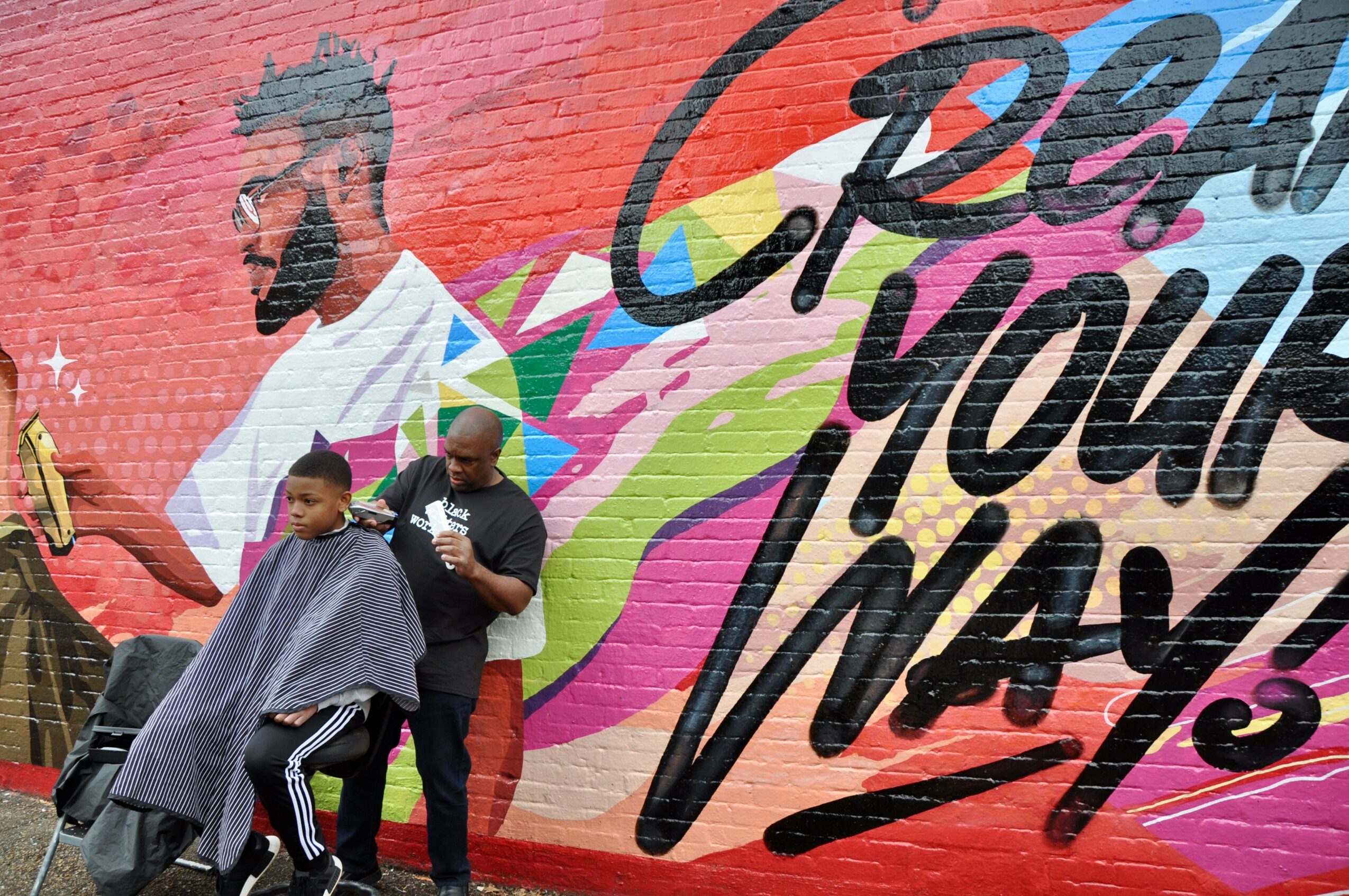
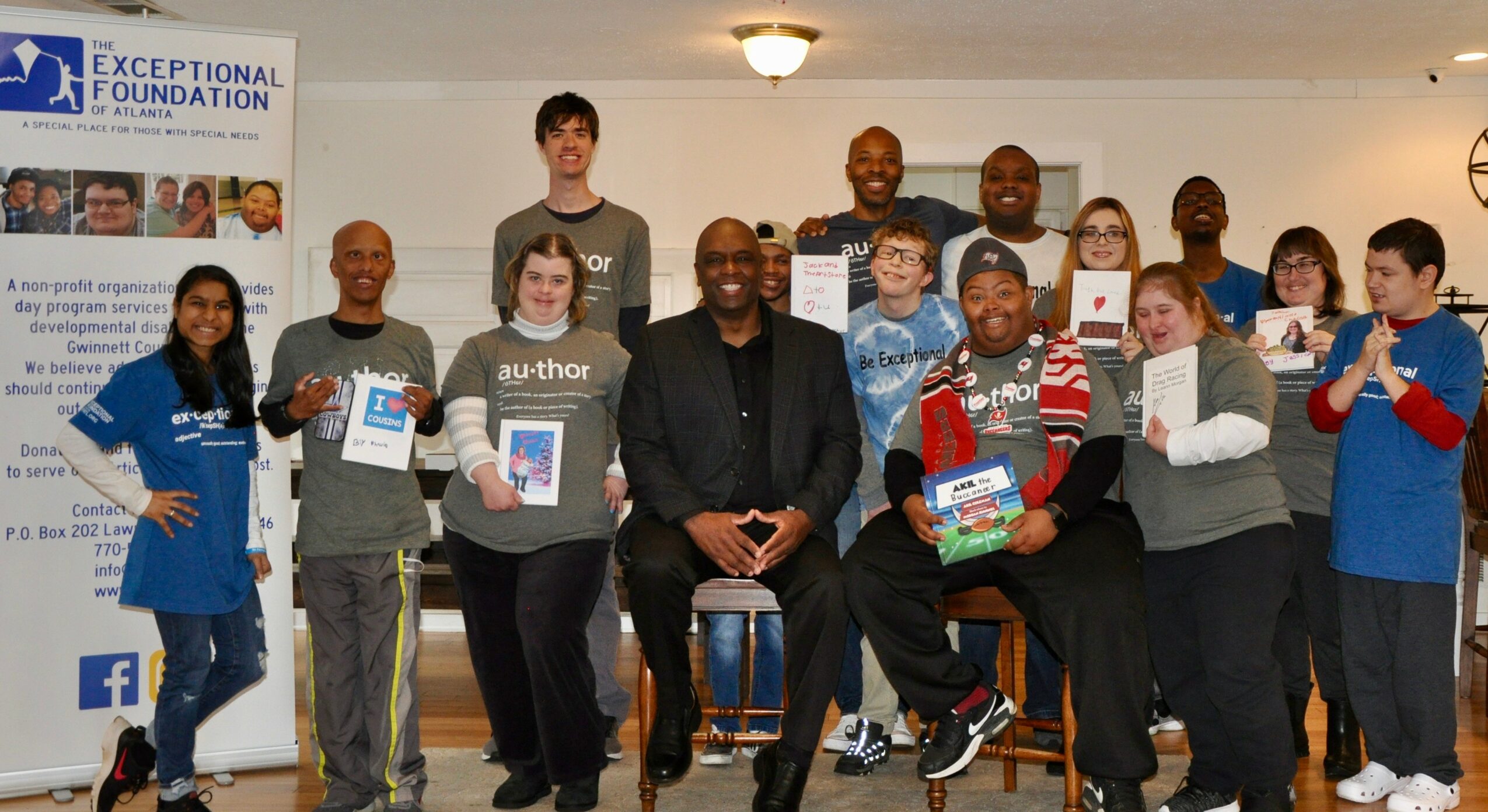
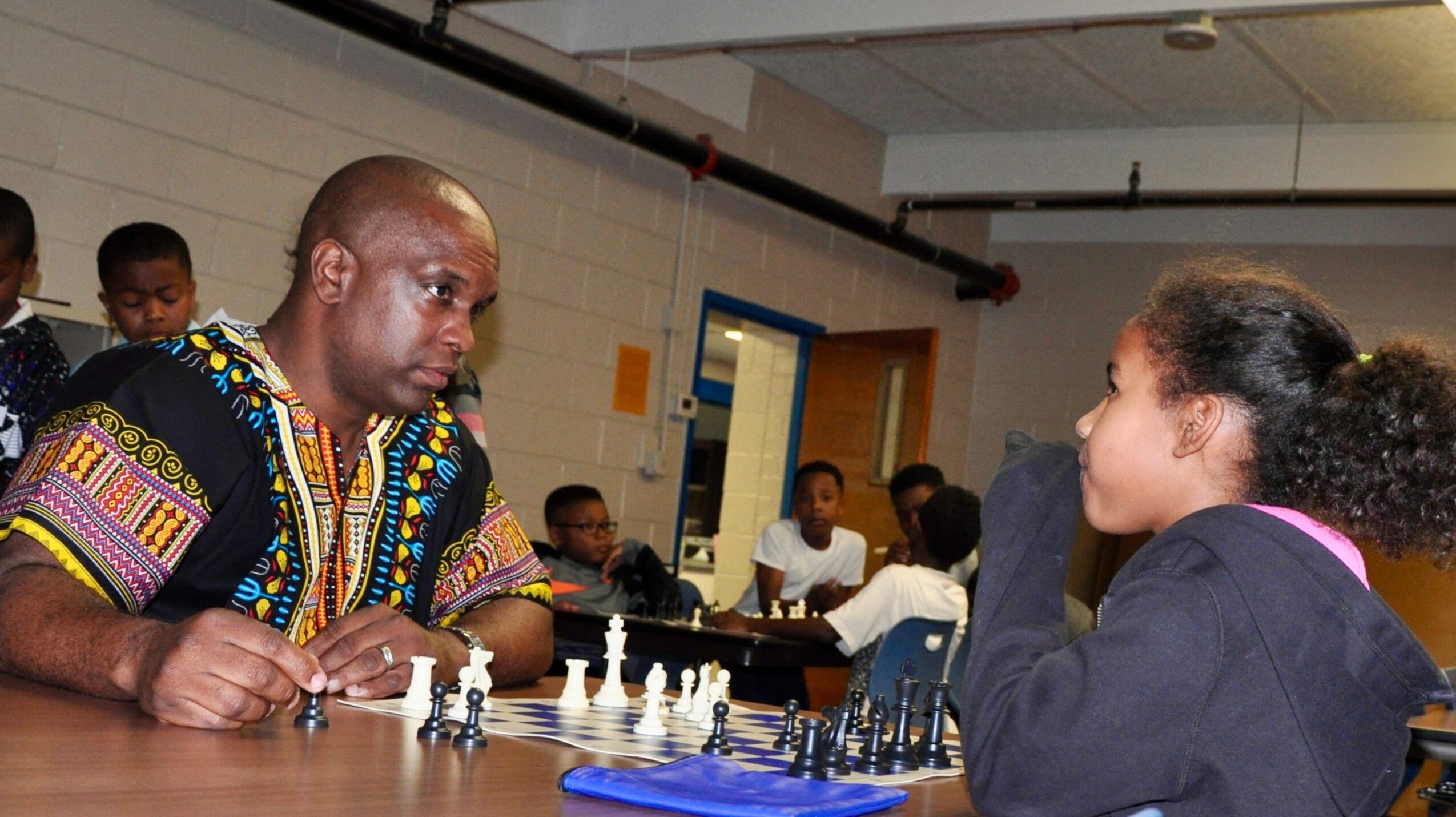
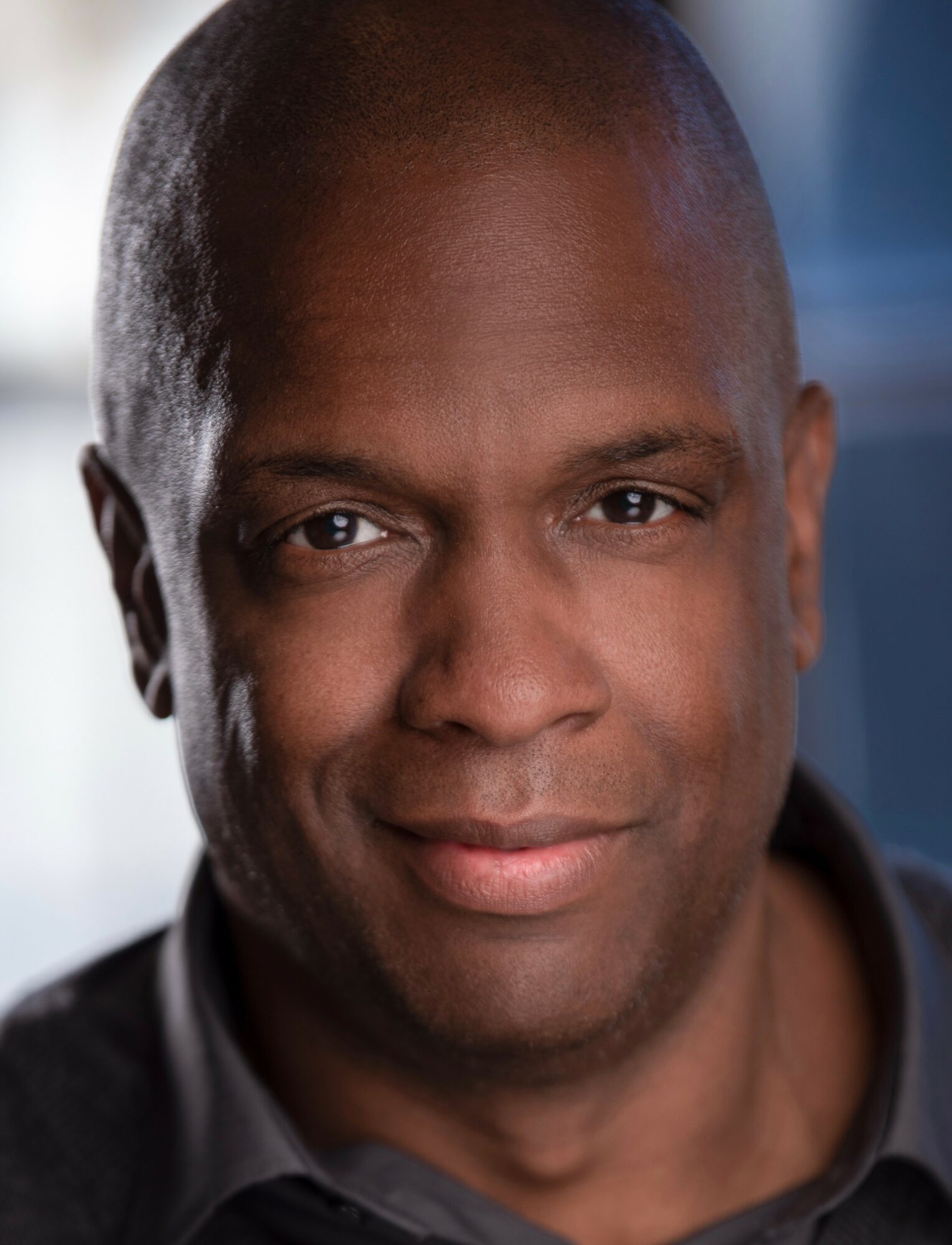
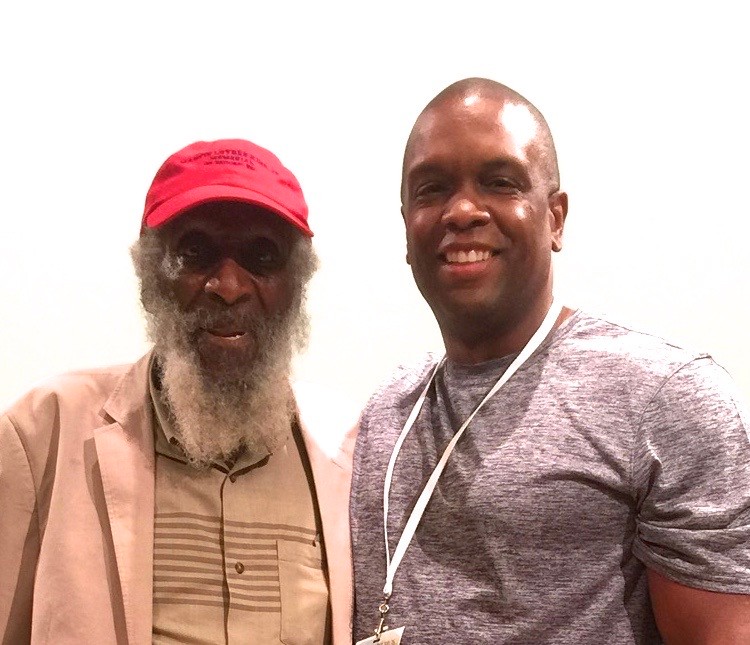
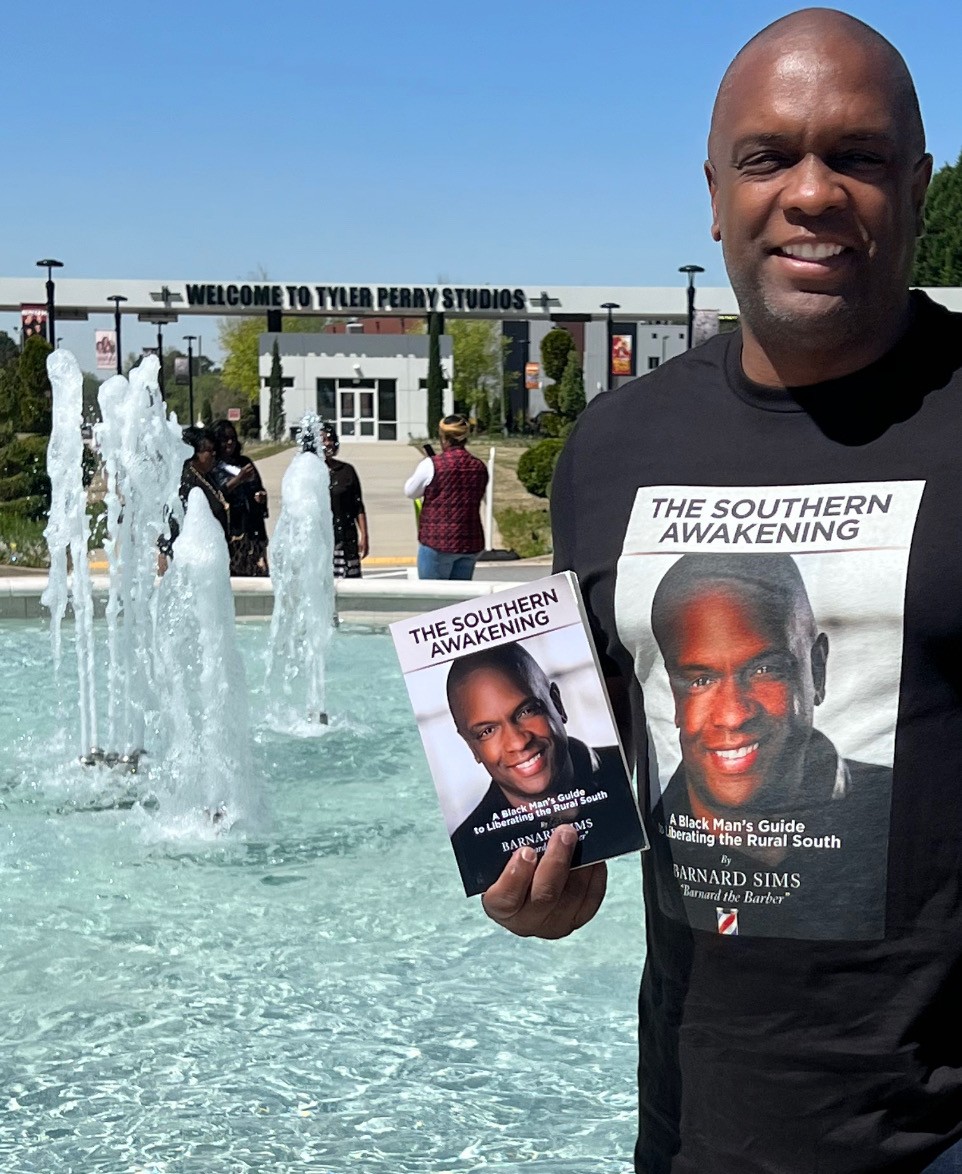
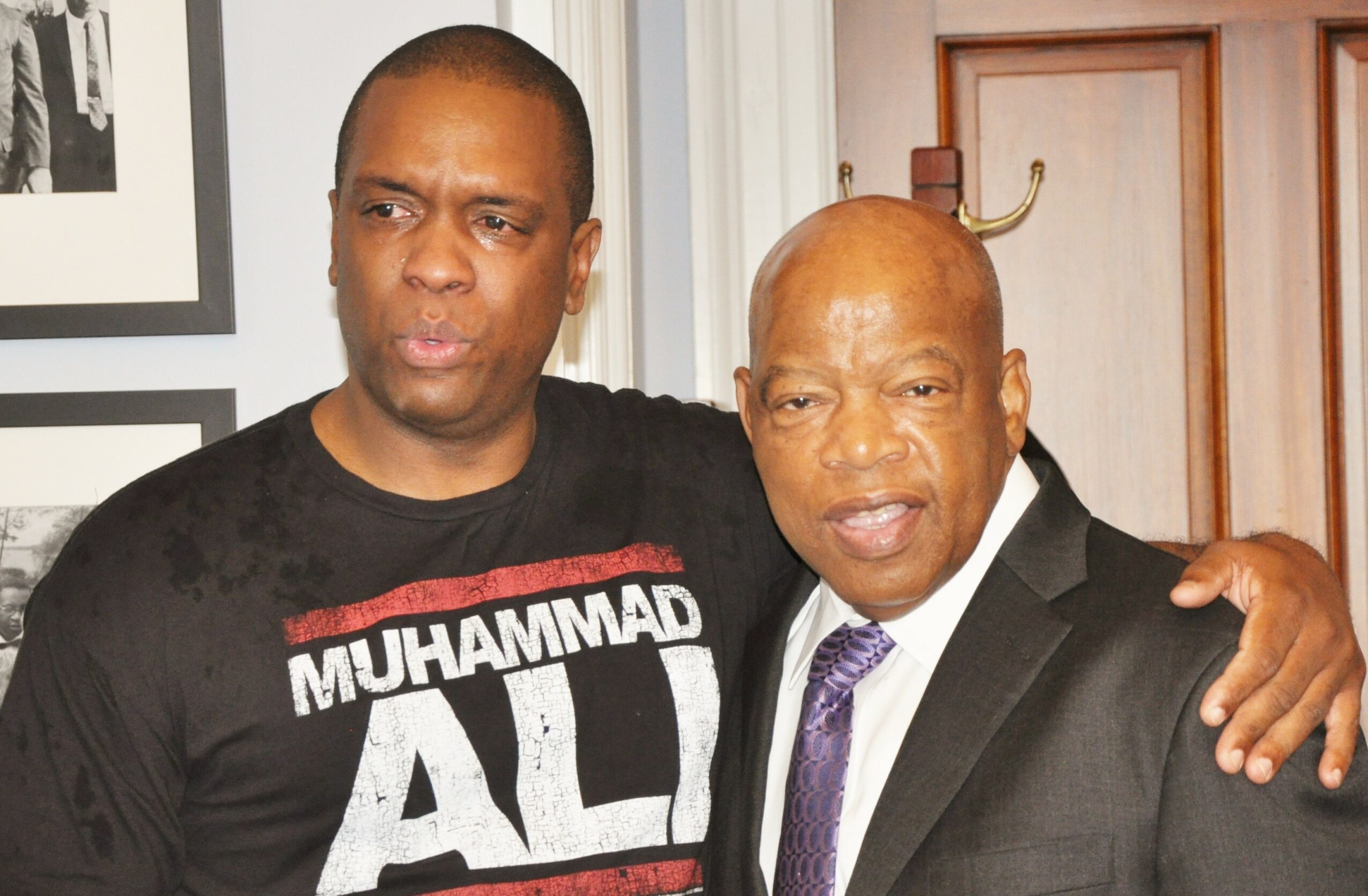
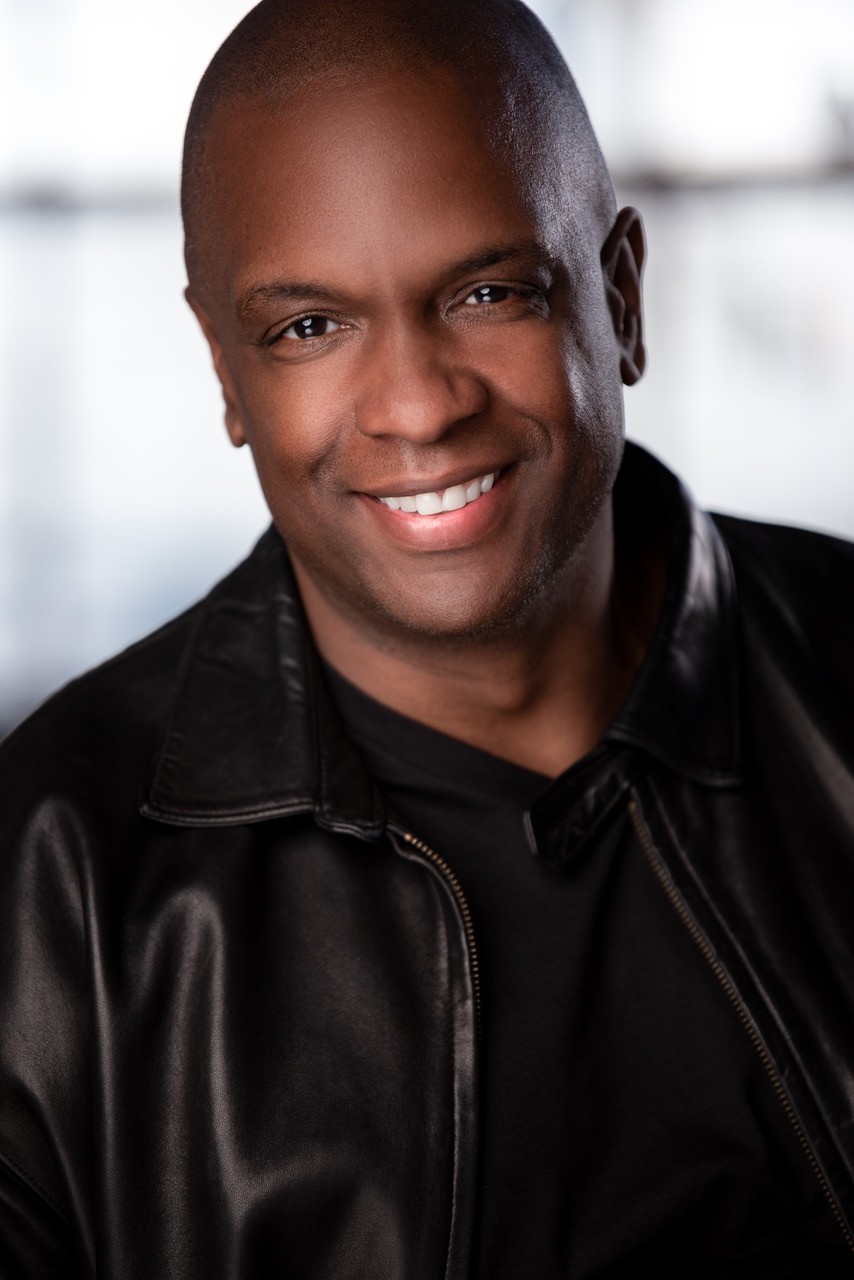
Image Credits
Dwayne Boyd Malik Evans













